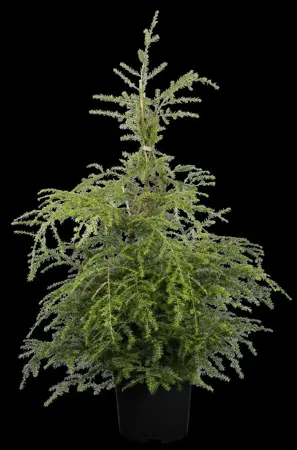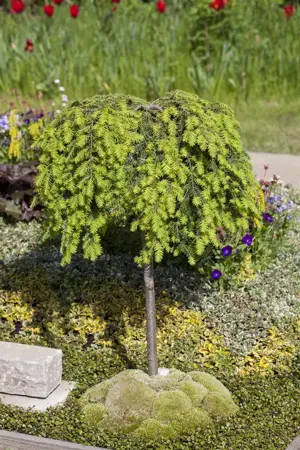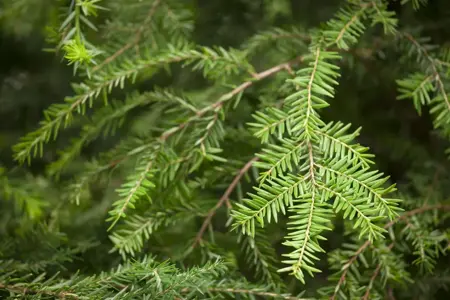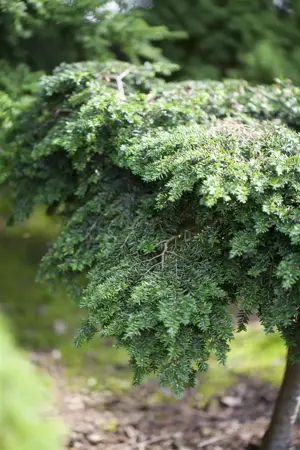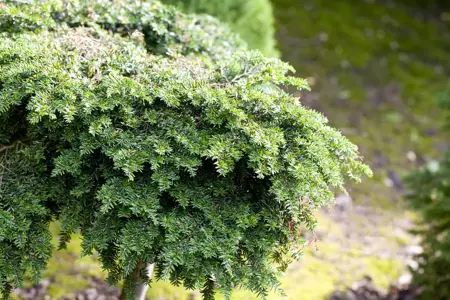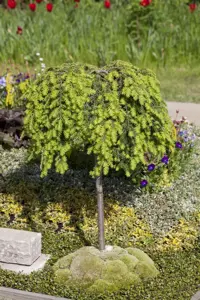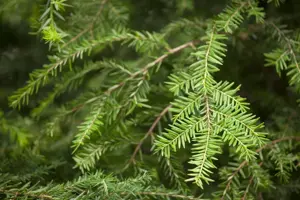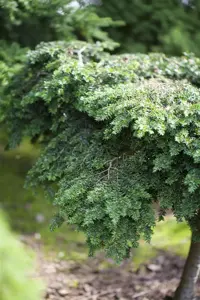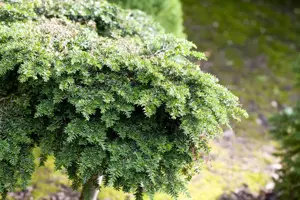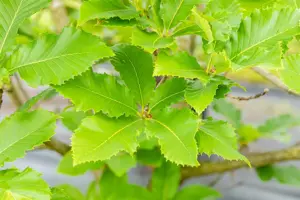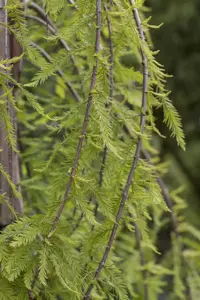Tsuga canadensis - 200-225 CM C45
Tsuga canadensis - 200-225 CM C45
Description
The Eastern hemlock (Tsuga canadensis) is a tree that grows broad and pyramidal and usually reaches a height of around 20 metres and a width of around 12 metres. Its needle-shaped, glossy leaves are dark green in colour. Decorative brown cones adorn Tsuga canadensis from September. This shrub tolerates frost well. It prefers well-drained, lime-free, nutrient-rich soil in a sunny to semi-shady, wind-protected position.
Bulletpoints
* brown-yellow shoots
* tolerates pruning
* Shade tolerant, cannot be built over
Leaves
The Eastern hemlock is evergreen. Its needles are dark green, glossy.
Bark
Grey, scaly bark makes this plant an eye-catcher in any garden.
Spread
North America.
Frost hardiness
The Eastern hemlock has good frost hardiness.
Growth
Broad, pyramidal.
Water
The plant needs plenty of water. Do not allow the soil to dry out.
Pruning
This plant is tolerant of pruning.
Location
Preferred location in a sunny to semi-shady, wind-protected position.
Soil
Normal soil.
Planting time
Container plants can be planted all year round, except when the ground is frozen and in summer heat (over 30°C).
Care
- This plant is susceptible to snow pressure. In snowy areas, it is therefore advisable to wrap the branches with string. Otherwise, they may split apart and may not fully recover. When the snow season is over, the twine must of course be removed.
- Cut and saw wounds as well as broken branches should be treated with a wound dressing as soon as possible to prevent pathogens from entering the plant.
Fruit
The oval, brown cones of Tsuga canadensis appear from September. The young cones have a blue-green colour.
Use
Solitary
Shoots
The shoots of Tsuga canadensis are brown-yellow in colour.
Root
Tsuga canadensis is a heartroot and, depending on the soil, forms roots close to the surface.
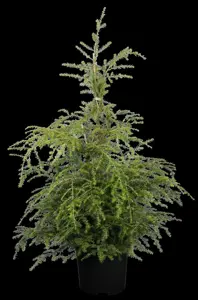
- Article number49
-
EAN codeTSCANADE-2200225C45
- Latin nameTsuga canadensis
- catalogLandscape shop

